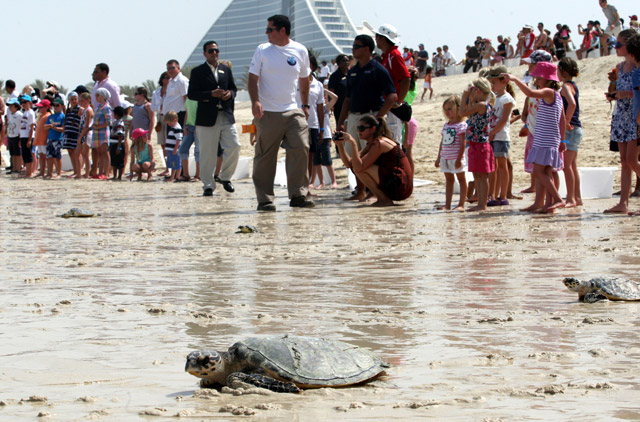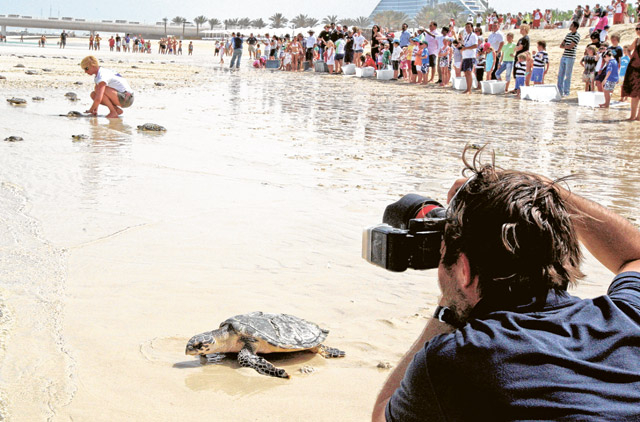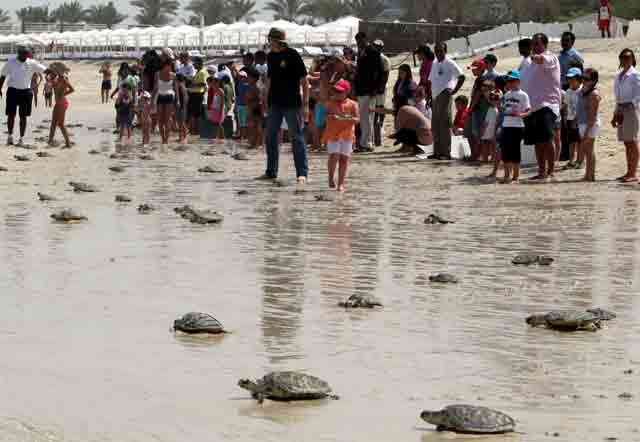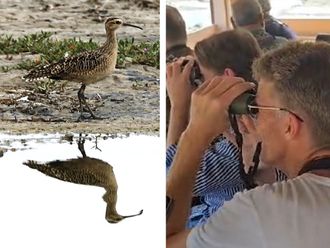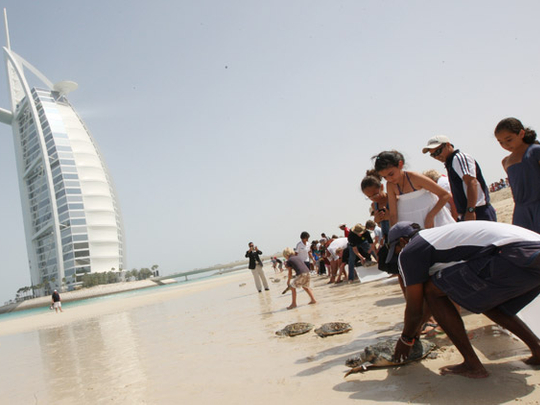
Dubai: In front of a crowd of hundreds of onlookers, 100 endangered hawksbill turtles were released back into the wild on Friday.
The animals were rehabilitated by the Dubai Turtle Rehabilitation Project (DTRP), which is a collaboration between the Wildlife Protection Office and the Burj Al Arab aquarium. It is also Dubai’s only turtle rehabilitation project.
The turtles were placed on the sand by 100 lucky children – some of whom had won a competition via Facebook and some hotel guests – and flipped their way back to their homes in the sea.
The animals come to the centre with different problems, including injuries related to becoming entangled in fishing line; positive buoyancy, meaning they can’t dive down underwater; barnacle encrustation; and exhaustion, according to Warren Baverstock, Aquarium Operations Manager, Burj Al Arab.
"Through awareness, we’ve had 360 turtles brought in, in the past four months. I really want to say thank you to the people of Dubai for all their support," he said on the beach Friday.
"Rehabilitation can take between three and 24 months, depending on the injuries. The turtles are found along the shoreline of the UAE and many are found by dog-walkers washed up on the shore. We keep them alive and get them back into the sea,” he said, adding that they are a small team comprised of eight members.
The turtles’ primary care is carried out at the Burj Al Arab and then they are moved to the two rehabilitation pens at the Mina A’Salaam Hotel. After close monitoring, they are then released back into the sea.
Each animal over 30cm long is tagged and every turtle is microchipped. “We’ve never had one return to date,” Baverstock said.
Earth day is celebrated on April 22 each year, to encourage companies around the world to remember and appreciate the earth’s natural environment.
Launched in 1970, it is now celebrated in more than 175 countries worldwide and was designated International Mother Earth Day by the UN in 2009.
Turtle facts
- There are two types of turtle commonly found in the Gulf of Arabia, the Hawksbill and Green.
- A female turtle can lay between 60 and 150 eggs depending on the species.
- It takes the eggs around two months to incubate depending on the climate.
- Turtles will always try to return to the very beach where they emerged to lay their eggs.
- Only one out of 1,000 hatchlings survives until maturity (i.e. only 1 hatchling out of every 10 nests will survive to adulthood).
- Nobody is quite sure how long turtles live for but it is estimated that they can live in excess of 150 years.
- Under UAE law it is prohibited to capture sea turtles of all species or to collect their eggs, the penalty for doing so includes imprisonment and/or a heavy fine.
Source: jumeirah.com/turtles


